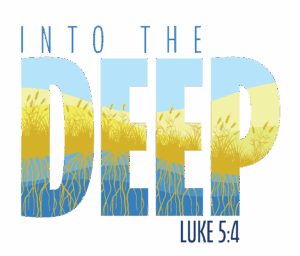Banned Books Service Project at General Synod 35
By: Dr. Sharon R. Fennema, Curator, Join the Movement toward Racial Justice

By: Dr. Sharon R. Fennema, Curator, Join the Movement toward Racial Justice

Despite decades of activism aimed at desegregation, the statistics all tell us that in the United States, we still largely live in a segregated society. In our daily lives, we are most likely to cross paths with and be in relationship with people with whom we share experiences and identities. Social media algorithms, search engines, and web platforms conspire to keep us in echo chambers, encountering the lives of people who look like us, think like us, agree with us. For many of us, books have been one way to expand our horizons. What and who we read opens us to new worlds, diverse ideas, different experiences beyond our own. We rely on books to educate and inform us and expand our imaginations, so that we can be better siblings in Christ. As a people of sacred stories, we know that stories have the power to inform and transform us, to show us both who we are and who we can become.
In a time of intense political polarization, we are facing an unprecedented number of attempts to ban books. Books by authors of color, by LGBTQ+ authors, by women and books about racism, sexuality, gender, culture, and history are the ones most often targeted by bans. When some seek to police access to some experiences, some histories, some understandings, some ideas, the image of God is dimmed. Without these books, our encounters with the amazing diversity of creation are incomplete, and our capacity for compassion across difference is stymied. Our love of God is limited because we do not have the chance to recognize all the ways the divine image is manifest in our world.
In the United Church of Christ, we know that as people called to build a just world for all, we need each other’s stories and experiences to live into the fullness of the Body of Christ. We believe that banned books have a special vocation, a particular calling in our faith communities: to help expand and enliven the image of God and empower us to reckon with truths that demand our loving accountability. General Synod 35 invites us into the deeper truths, beauty, and reckonings these books hold, so that they might live out their calling and empower us to continue becoming God’s kindom of justice and love, on earth as it is in heaven.
“This project is so exciting to me because everyone needs access to ideas and information
in order to be faithful members of their community.
Banning books is an attempt to prevent people from learning and growing
—an attempt to limit their ability to be the people God is calling them to be.”
– Rev. Mary W. Nelson, Transitional Conference Minister, Missouri Mid-South Conference

SHARE THIS NEWS ARTICLE
Learn more about the Banned Books Service Project at General Synod and how you can participate in your own local contexts by downloading our toolkit. As a people of sacred stories, we know that stories have the power to inform and transform us, to show us both who we are and who we can become. Let’s not allow fear and hate to limit the sacred image of God found in these stories we share.
Download the ToolkitSign up to receive alerts about new stories and resources. You’ll also enjoy our Join the Movement newsletter, featuring changemaker profiles, reflections on current events in the movement toward racial justice, and more. Get sneak previews and information about upcoming events, workshops and webinars.

